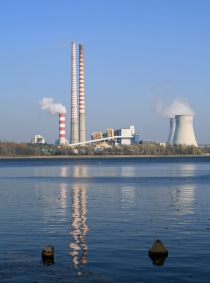The UK Energy Research Centre (UKERC) launched their report on carbon capture and storage (CCS) at the Royal Society in London on 19 April. LoLo student Mike Fell was there.
I’ve tended to be sceptical about CCS. As someone who spends a lot of time thinking about how we could use less energy and take a greater proportion of what we do use from renewable sources, CCS seems like a bit of a “get out of jail free” card. Not only would it encourage the continued use of fossil fuels (by reducing the need to meet our energy requirements through low-carbon means), but it also seems a lot like sweeping dirt under the carpet for future generations to deal with. I think this is a fairly traditional environmentalist view.
However, putting aside reductions resulting from increased reliance on natural gas for electricity (replacing more carbon-intensive forms of generation such as coal) and supressed economic activity in recent years, progress on cutting carbon emissions is pretty depressing. Many people, including myself, are becoming a lot more pragmatic in their view of CCS. If we want to avoid the worst impacts of climate change, finding a way to do carbon capture cheaply and effectively around the world is going to be essential.
It’s interesting to read how the authors of the recent UKERC report on the subject think that this should be approached. The main take-home point for me was about keeping technological options open. Particularly interesting were the examples from past energy infrastructure transitions – like the development of nuclear power in France. Initially the government pitched for a French-designed reactor and a number were constructed, but the eventual mass rollout in the 1970s and 80s was based on a US pressurized water reactor (PWR) design. As it happens, while the PWR technology was relatively unproven at the time government commitment to standardization kept costs down compared to other countries which took a less decisive approach. The initial investment in homegrown technology was a risk that backfired, while the later risk to opt for PWR worked out well. The UKERC team recommend an approach to CCS that keeps options open long enough that we don’t get locked into a technological path too early which might rule out more attractive alternatives at a later stage.
Check out the report for more background and recommendations.

